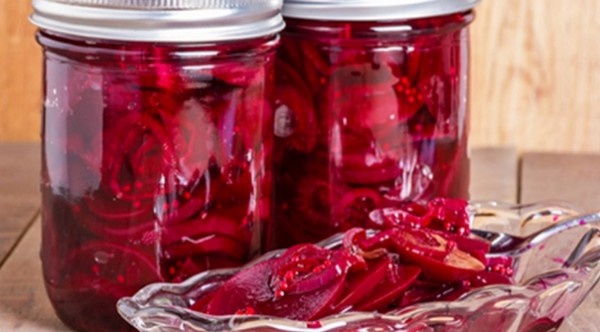Adding beets to your diet can do wonders for your health. Beets offer important nutrients that only a few vegetables have.
It is considered that beets are responsible for the health and longevity of Russians. This unique vegetable contains betalains and polyphenols, antioxidants that can protect against heart disease, birth defects and cancer. Moreover, beets are a great source of betaine which has the ability to stimulate liver cell function, thus helping the body to eliminate toxins effectively. You can even obtain more benefits from this incredible food with pickling
Health Benefits of Fermented Foods
We need to mention that not all pickling is equally nutritious. Pickling has to be done in a natural way in order to obtain the benefits. This means that you should not add vinegar. Just salt and water! In this way, you will produce lacto-fermentation. Lacto-fermented foods are vegetables placed in a brine of water and salt at a room temperature. This lets the beneficial bacteria develop.
Any veggie can be fermented and it will yield high amounts of probiotics. It mostly yields the Lactobacilli type, the bacteria that create lactic acid. This acid has the ability to protect the fermented food from the pathogenic bacteria. Besides creating naturally occurring probiotic supplements, fermentation can also add other nutritional benefits. In addition, lacto-fermented vegetables offer more benefits because the nutrients are pre-digested and easily assimilated.
Fermented foods have a rich content of beneficial bacteria that has the ability to cleanse your body of heavy metals and toxins. Many studies showed that probiotic rich foods are related to improved overall health.
How to Make Naturally Fermented Pickled Beets
You should know that this recipe is for one jar of pickled beets
Needed Ingredients:
- 6 medium beets
- 1/2 tsp. sea salt
- 2 cups water
Optional Seasonings: coriander seeds, mustard seeds, cloves, fennel seeds, cinnamon stick
Directions:
First, you should wash and dry the beets. Then, poke the beets in a few places, put them on a baking sheet and bake at 300 degrees for 3 hours or until soft. Make sure to peel off the skin and chop into julienne type slices. Pack beets in a quart-sized canning jar. You should prepare a brine of sea salt dissolved in water.
Next, pour the brine over the beets so the liquid will be 1 ½ inches from the top of the jar. Make sure that the beets are submerged in brine. Cover and keep at a room temperature for 3 days. Then, you can transfer to cold storage.
Source: Living Traditionally
